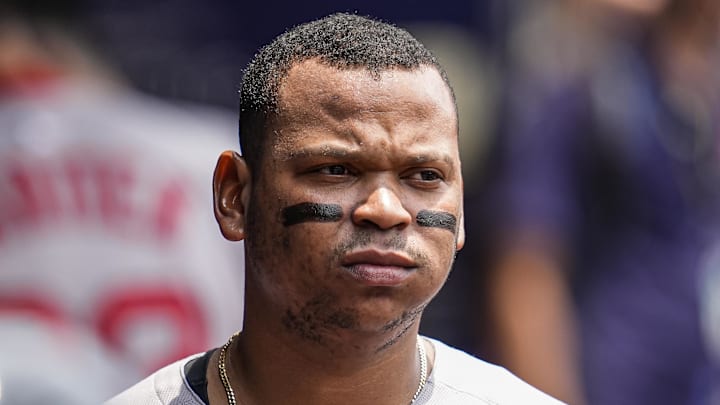Over five months after the Boston Red Sox shockingly sent All-Star slugger Rafael Devers to the San Francisco Giants, you can count Hall of Famer David Ortiz among those still unsure if the Red Sox made the right move.
Boston dealt Devers, the face of the franchise and one of the sport’s premier hitters, to the Giants in mid-June for pitchers Kyle Harrison and Jordan Hicks, as well as minor-league pitcher Jose Bello and infield prospect James Tibbs. The Red Sox later traded Tibbs, the No. 13 pick in 2024, to the Los Angeles Dodgers for veteran pitcher Dustin May.
The Devers trade came over two years after signing an 11-year, $331 million contract extension that would have kept him in Boston through 2033. However, Devers notably refused to move to DH or first base following Alex Bregman’s arrival last spring, though the nine-year vet eventually gave in and spent his final weeks in Boston as a full-time DH.
“Unfortunately, things didn’t work for the organization to be on the right track,” Ortiz told the “ITM Podcast” last week. And unfortunately, sometimes you have to make those moves. I don’t argue that with the owners. They are the boss. They are the ones who ask you how much you want on your contract. They agreed [on extending Devers].
“But remember, you are an employee,” Ortiz continued. “You’re not a boss. There are not two bosses. There’s just one. John Henry.”
Not only is Ortiz’s assessment dead-on, but all of the Red Sox’s young, budding stars and prospects alike should take notice.
No Red Sox player is safe following the Rafael Devers trade
The Red Sox’s decision to trade Devers reeked of confidence blended with arrogance, a recipe that often spells disaster for contending teams. Even at the time, the issue wasn’t the Red Sox moving on from Devers so much as it was how little they received for a perennial All-Star slugger.
Lead baseball executive Craig Breslow wasn’t the one who signed Devers to the extension. Instead, Chaim Bloom made that move only months before the team fired him in mid-September. Breslow had no true ties to Devers, and the delayed move from third base to DH may have been the final straw.
Rafael Devers' second homer of the night makes it TEN runs for the @SFGiants! pic.twitter.com/KGTEC335yI
— MLB (@MLB) August 28, 2025
Part of why the Red Sox signed Devers to such a massive contract was not only because the Yankees had just re-signed Aaron Judge, but also because Boston had already lost Xander Bogaerts and traded Mookie Betts within a three-year span. Devers was their best hope at ensuring the Red Sox could return to contending and keep up with the Yankees and Blue Jays.
If Breslow was comfortable trading Devers when he did, what’s to stop him from trading anyone he doesn’t feel is the right fit, regardless of their contract or stats? And it’s also true that the Red Sox didn’t need Devers in securing their first postseason berth since 2021. However, that’s only a short-term victory, one which can easily be forgotten if the Red Sox fall out of contention.
In the end, Ortiz is correct that John Henry is the only true boss, at least on paper. But Breslow is the one putting the deals in place and seeking Kennedy’s approval — and if you run even slightly afoul of Breslow the way that Devers did, then you’re not long for Boston.
